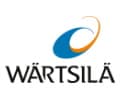Wärtsilä signs Electrification and Integration Services agreement for USA’s first zero-emission high speed ferries project

Technology group Wärtsilä has signed a strategic partnership agreement to provide its Fleet Electrification and Systems Integrator Services for a project to build the first zero-emission high speed ferries in the USA. The fully electric vessels will be built for San Francisco’s Water Emergency Transportation Authority (WETA), the operator of the San Francisco Bay Ferry system.
The project, and several others Wärtsilä will work on under this partnership, are a part of the agency’s Rapid Electric Emission-Free (REEF) Ferry Program, a phased decarbonisation of high-speed, high-capacity ferry service in the San Francisco Bay. Wärtsilä’s track record with hybrid and zero emission ferry projects, as well as its expertise acting as an integrator for the delivery of hybrid and fully electric propulsion solutions were key factors in the company’s selection as a project partner. Wärtsilä will work within the WETA project team to finalise vessel and charging system concepts.
“We’re proud to operate the cleanest high-speed ferry fleet in the nation, but a zero-emission future for our system is within reach,” said WETA Executive Director, Seamus Murphy. “Wärtsilä’s expertise and experience will be incredibly valuable given the complexity our ferry decarbonisation program entails.”
“This is a major project within the maritime sector’s journey towards decarbonisation, and we are proud to be a part of it,” said Hanno Schoonman, Director of sales for AMER region, Wärtsilä Marine Power. “Wärtsilä joins an industry leading team tasked to develop newbuild battery electric vessels that combine innovative technology and sustainable practices. Wärtsilä is well qualified to provide this project support, and this agreement is a clear endorsement of our strong track record in systems integration and emission-free propulsion.”
After completing the conceptual phase, WETA will move on to the initial construction phase of a multi-vessel programme. This phase will involve the building of three smaller ferries with a capacity of approximately 150 passengers each and two larger ferries capable of carrying at least 300 passengers. Additionally, the scope of this phase will encompass the inclusion of battery charging floats. The construction of the first electric-powered vessel is slated to commence before the conclusion of 2023, with commercial operations expected to launch in 2025.
WETA has long been a leader in sustainability, taking action beyond California’s ambitious climate goals. To comply with new California Air Resources Board (CARB) regulations, and in order to continue to be a leader in the sector, WETA is committed to accelerating zero-emission implementation ahead of and beyond regulatory requirements.
Source: Wärtsilä
